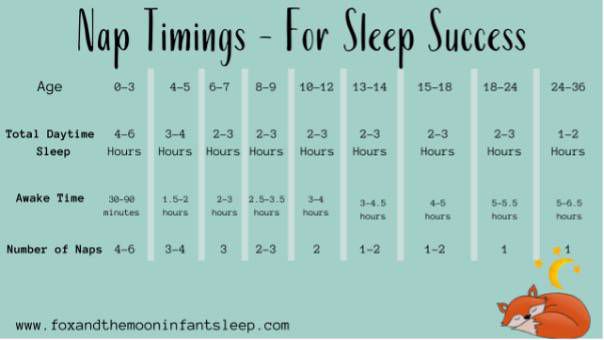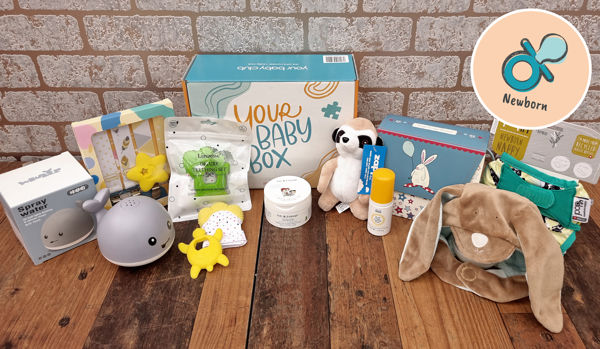One of the most common reasons why families approach is me is that they worry, or they are struggling with their little one taking consistently short naps of around 30 minutes or less. Naptime is the sacred time you can sit down, get some jobs done, catch up on sleep, play with another child, relax – so it can be a little frustrating when your little one doesn’t nap for very long.
I define a short nap as 30 minutes and under, the problem with short naps is that your child won’t be getting the restorative sleep they need to prevent them from becoming overtired and this quite often means meltdowns and lots of tears by late afternoon. Babies that take short naps can also wake more frequently and/or early in the morning due to the fact they are overtired.
Some babies will prefer power naps, some will not be developmentally ready to take longer naps, however, there are things you can do and things you can put in place to make these longer
1. Is Your Baby Under 6 Months?
Naps start to consolidate and lengthen around the 5-month mark. This means that if your baby is consistently taking short naps and they are around 6 months of age and younger then short naps are developmentally normal so just hold tight, longer naps are coming. In the meantime, when your little one wakes up after 30 minutes spend 10/15 minutes cuddling or rocking them and see if that helps them go back to sleep. If that doesn’t work then please don’t stress, just keep trying
2. Is Your Baby’s Sleep Environment Appropriate & Have You Implemented a Wind Down Routine?
There comes a time where your baby will prefer to sleep in a dark, quiet environment. Portable blackout blinds will be the BEST thing you buy – believe me! They are super cheap and simply Velcro to the window frame, you can take them with you on holiday or to families houses and they just come off and back on with no fuss and they create a REALLY dark environment.
Now imagine someone saying to you “go to sleep now, close your eyes” (I mean I bet most of you probably would just nod off considering you're probably tired, new parents!) but babies need those signals and those pre-sleep routines, just like you do at bedtime, to let them know its time for a nap. This doesn’t have to be long, 5 minutes is more than enough, the perfect pre nap routine in my opinion is:
- Up to their room
- Change nappy and put on a sleeping bag
- Sit in a chair in your baby’s room
- Signal sleep to them by singing a song they are familiar with and keeping it the same each time they take a nap
3. Is My Baby Tired Enough?
Brand new babies, newborn to around 4 months, cannot manage to stay awake for long, so look out for sleep cues such as rubbing their eyes, pulling at ears or rubbing nose, turning away from you when you try to interact or entertain.
As they get older, we can give guidelines as to how long a baby can be awake before but they start to become overtired, this simply means they may find it harder to fall asleep and stay asleep for long.
As your baby gets older these awake times increase, getting this wrong is one of the main reasons why you may struggle with your baby or child’s sleep. Have a look at the guide below, trust your instincts and watch for your child’s sleep cues.

4. Is My Baby Hungry?
A lot of books we read and advice we are given is to get your baby on a 4 hourly eating schedule throughout the day, but this can sometimes mean that if a baby is going to sleep in between this timeframe then they may wake hungry, it's important to work on their calorie intake rather than a strict feeding regime, whether breastfeeding or bottle-feeding. This may mean your baby has a feed before a nap which is absolutely okay!
5. How does your baby fall asleep?
Brand new babies, newborn to around 4 months, cannot manage to stay awake for long, so look out for sleep cues such as rubbing their eyes, pulling at ears or rubbing their nose, turning away from you when you try to interact or entertain.
As they get older, we can give guidelines as to how long a baby can be awake before but they start to become overtired, this simply means they may find it harder to fall asleep and stay asleep for long.
As your baby gets older these awake times increase, getting this wrong is one of the main reasons why you may struggle with your baby or child’s sleep. Have a look at the guide below, trust your instincts and watch for your child’s sleep cues.
A lot of books we read and advice we are given is to get your baby on a 4 hourly eating schedule throughout the day, but this can sometimes mean that if a baby is going to sleep in between this timeframe then they may wake hungry, it's important to work on their calorie intake rather than a strict feeding regime, whether breastfeeding or bottle-feeding. This may mean your baby has a feed before a nap which is absolutely okay!
Do you feed, rock, cuddle, sway to sleep? If you do and your baby is happy, sleeping well and you are happy then don’t change this. It is not all about independent settling. Some babies are really good at this and can put themselves to sleep without much parental help, other needs a lot of parental input. If you find that your little one is waking after around 35/40 minutes and is still very tired, they may need you to do what you initially did to help them fall asleep. If this is becoming something you want to steer away from then there are plenty of gentle self-settling techniques you can introduce. A simple thing you can start to do is add another sleep signal to your pre-bedtime or naptime routine, for example, if you currently feed your little one to sleep then you could now start to tap their bottom as you do so. Over the course of a few days, you can work on taking them off the breast or bottle just as they fall asleep but continue to tap their bottom, slowly, you can then try and take them off the breast or bottle before they are asleep, stand up, tap their bottom and then into cot where you continue to do that until they are asleep.
To read more, my sleep success guides can be found at:







